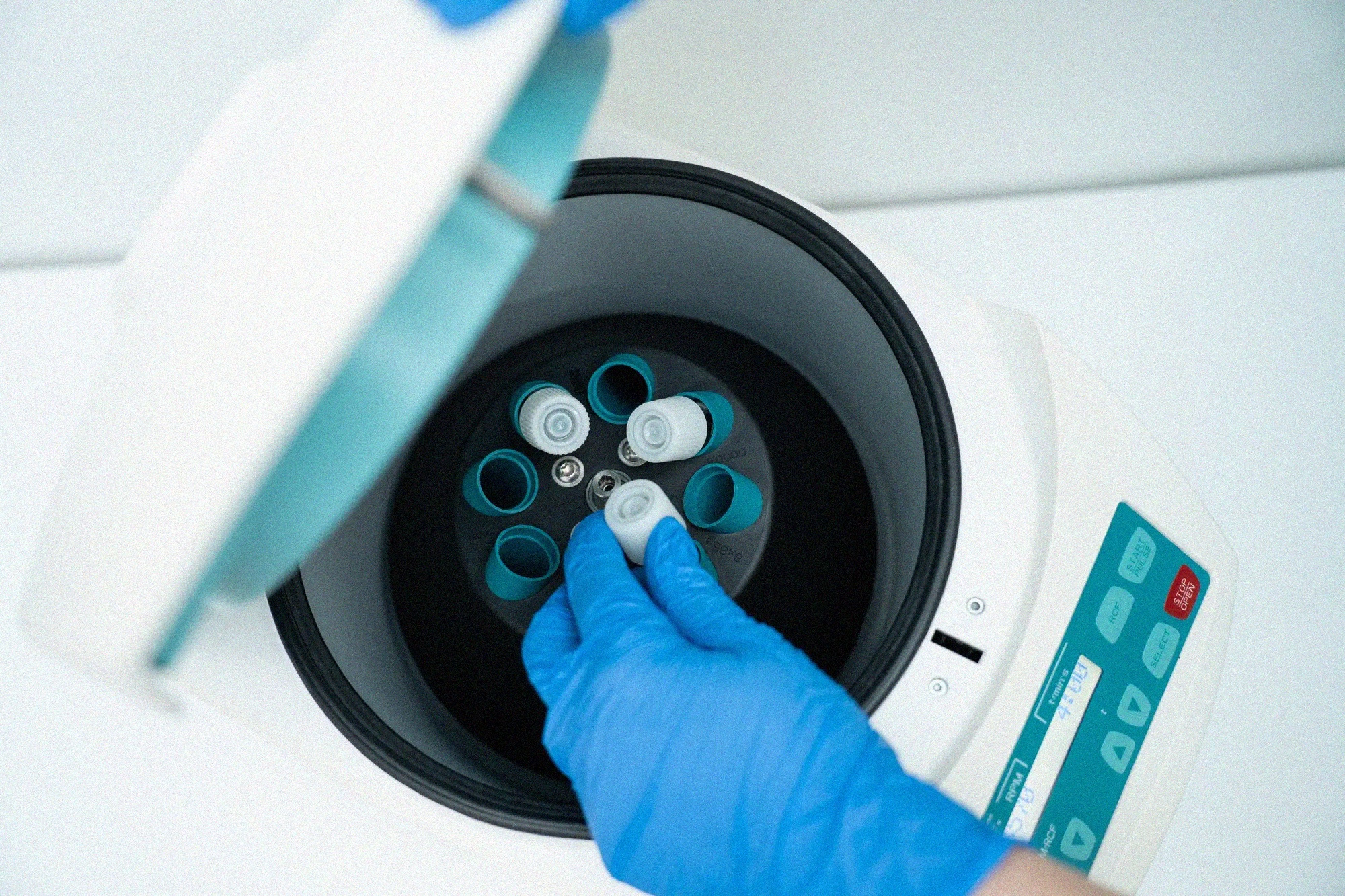Preparing for IVF: Tips to Increase Your Likelihood of Success | Sunfish
How to Prepare for IVF
Preparing for your first IVF cycle is a significant milestone, and it's completely natural to feel a mix of excitement and nervousness about what lies ahead. You've likely learned that IVF stands for "in vitro fertilization"—a process where embryos are created in a specialized lab, giving you new possibilities for building your family.
Your fertility team will guide you through the physical and emotional preparation needed for success. Your doctor will order tests to understand your unique health profile and hormone patterns, while you focus on emotional well-being by learning about the process and building your support system.
By caring for both your physical and mental health during preparation, you'll enter your IVF cycle feeling confident and as healthy as possible—improving your chances of the successful outcome you're hoping for.
If you'd like to learn more about how our IVF Success Program provides personalized support at every step with data-driven guidance tailored to your unique situation, we'd love to connect with you.
Pre-Screening Before IVF Cycles
Before beginning IVF, your medical team will conduct a thorough evaluation to understand your fertility picture as completely as possible. If you've already tried IUI, some of these tests may feel familiar, but they're essential for creating your personalized treatment plan.
Your pre-IVF medical testing will likely include:
- Blood work to check hormone levels. Your doctor will typically schedule hormone testing on the first couple of days of your menstrual cycle to establish baseline levels. This helps with accurate monitoring throughout your IVF cycle and identifies any imbalances to address beforehand. Your team will monitor hormone levels regularly throughout the process to ensure everything progresses as expected.
- Screening for genetic disorders. This comprehensive screening checks if you and/or your partner are carriers of any genetic conditions. If results suggest you and/or your partner might be a carrier, you'll meet with a genetic counselor who will explain the results and discuss your options.
- Semen testing (if applicable). This test identifies any male-factor fertility considerations, such as sperm count or motility issues, so your team can tailor your treatment plan accordingly.
- Ultrasound. Your doctor will perform an internal ultrasound to evaluate your uterine lining and ovarian follicles, providing insights into your reproductive health and helping plan your treatment approach.
- Additional exams and procedures. Your medical team may recommend other screenings to optimize your success chances. For instance, some patients benefit from a hysteroscopy to evaluate the uterine cavity and remove any fibroids, polyps, or scar tissue that might interfere with conception.
Tips For a Successful IVF Cycle
Taking excellent care of yourself during this time is one of the most empowering things you can do as you prepare for IVF. From nourishing your body with proper nutrition to supporting your mental well-being, every positive choice you make is an investment in your success.
Talk to Your Doctor About Your Diet
Some evidence suggests that a healthy diet is associated with improved fertility, though it can’t solve all issues. We know eating nutritious foods and staying hydrated benefits everyone—and it turns out diet may impact egg and sperm health.
As you prepare for your cycle, take time to talk to your clinician about:
- What to eat: Your doctor may have suggestions about healthy eating during this time
- Ways to mitigate IVF side effects like bloating or nausea that impact what (or if) you eat
- Guidance for specific diets or conditions: If you have GI issues or diet restrictions, be sure to let your doctor know
Talk to Your Doctor About Your Lifestyle and Habits
IVF and pregnancy cause major changes in your body, so you should plan to discuss your lifestyle with your doctor. Topics to cover include:
- Can I have caffeine? If you need that morning coffee, check with your team. While some people give up caffeine during IVF and pregnancy, your doctor can tell you whether that’s necessary—or guide you through a decision-making process about possible trade-offs
- Can I drink alcohol? Like caffeine, a lot of people simply walk away from alcohol during IVF. However, if you have questions or might want to drink, discuss this with your doctor to find the right approach for you. Note that the American College of Obstetricians and Gynecologists (ACOG) does recommend avoiding alcohol after the embryo transfer and throughout pregnancy.
- Can I smoke, vape, or have cannabis? These are extremely important to discuss with your doctor—for both you, and your partner (if they’re a smoker).
Check With Your Doctor About Prenatals and Supplements
If you’ve researched early pregnancy, you’ve probably read a lot about folate. During pregnancy, getting the right nutrients is vital, and the American College of Obstetricians and Gynecologists explains that prenatal vitamins contain the right mix of vitamins and minerals to support a healthy pregnancy and prevent certain problems, such as defects of the spinal cord and brain (neural tube defects).
For this reason, some doctors will recommend starting prenatal vitamins before IVF. However, not everyone tolerates prenatals well (it’s a big pill!), so check with your clinic about whether this is the right path for you.
Prioritize Self-Care to Reduce Stress
Fertility challenges can take a toll—but finding ways to care for yourself during the IVF process can make a meaningful difference. Whether it’s cooking a favorite meal, meditating, or spending time with friends, carving out moments that bring you joy matters. In fact, some research suggests that managing stress during IVF may help reduce anxiety and depression—and could even support better outcomes.
Your doctor can help you create a plan that’s safe and comfortable during IVF. Discuss the kinds of activities you enjoy to destress with your doctor.
You might also choose to speak with a therapist, join a support group, or find a fertility coach. With the expansion of telehealth and therapy apps, mental health support is more available than ever. There is no shame in seeking help, and therapy can be an extremely useful tool in managing stress, anxiety, and other difficult emotions that may arise throughout IVF.
Create Your Financial Plan
IVF typically costs $15,000 to $20,000 per cycle, depending on the complexity and your needs. At Sunfish, we believe that financial concerns shouldn't stand between you and your dream of parenthood. That's why we've designed our services to provide not just medical support, but also logistical guidance and financial peace of mind throughout your journey. Our comprehensive IVF Success Program brings together partnerships with leading fertility clinics, all-inclusive IVF packages, and dedicated personal support to guide you every step of the way.



.png)



